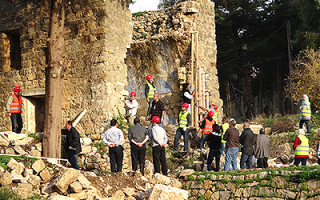Goal
To contribute significantly to preventing and reducing risks for all types of cultural heritage in order to build disaster resilient communities.
FAR directly responds to ICCROM’s Strategic Directions on: (1) Addressing World Concerns for Cultural Heritage; (2) Creating a Diverse and Inclusive Global Network; (3) Strengthening and Transforming ICCROM for the Future.
What we will do?
As a multi-partner capacity development programme, FAR emphasizes integrated and multi-hazard risk management for heritage of all types (movable, immovable and intangible), which is systematic and coordinated with actors from the wider disaster risk management field.
It promotes a systems approach for heritage and strengthens its links to the social and environmental dimensions of sustainable development. The programme strategy takes into account risk drivers such as: climate change and variability, armed conflicts, and socio-economic instabilities. It aims to build resilience by encouraging community-based approaches for disaster risk reduction of heritage, as well as using heritage resources for transforming conflicts and contributing to climate action.
FAR adheres to the implementation of the Sendai Framework for Disaster Risk Reduction for cultural heritage in compliance with the commitments UNESCO and ICCROM made at a special session of the World Conference Risk Reduction Conference (WCDRR) in 2015 in Sendai, Japan.
The relevant Sustainable Development Goals for this programme include:
- SDG 3 Good Health and Wellbeing
- SDG 11 Sustainable Cities & Communities
- SDG 4 Quality Education
- SDG 13 Climate Action
- SDG 5 Gender Equality
- SDG 16 Peace, Justice and Strong Institutions

